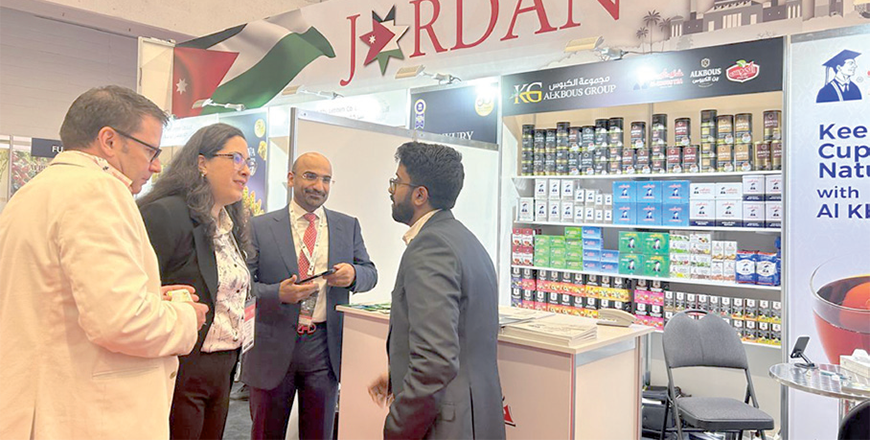You are here
Manufacturers eye untapped export potential amid global headwinds
By JT - Apr 13,2025 - Last updated at Apr 13,2025

The industry sector comprises 18,000 establishments, produces 1,500 product lines valued at JD17 billion annually, with exports reaching 150 countries (JT file)
AMMAN — Industrialists, confronting a “complex” global trade landscape, are advocating for a "strategic" pivot towards untapped markets and enhanced domestic competitiveness to bolster export performance.
The call comes as manufacturers grapple with rising costs and evolving international demand, seeking to leverage existing trade agreements and forge new alliances.
Industry leaders, speaking to the Jordan News Agency, Petra, on Sunday, emphasised the imperative for a comprehensive export strategy, one that aligns with Jordan's Economic Modernisation Vision (EMV) and the National Export Strategy.
This strategy, they argue, must encompass targeted market penetration, tailored to the nuances of distinct economic blocs, and the attraction of foreign direct investment to stimulate domestic production.
Data from the Jordan Chamber of Industry (JCI) reveals a diversified export profile, with chemical products and cosmetics leading at 23 per cent, followed by leather and textiles 22 per cent, engineering and electrical goods 18 per cent, and mining industries 13 per cent.
The sector, comprises 18,000 establishments, produces 1,500 product lines valued at JD17 billion annually, with exports reaching 150 countries.
However, export growth in 2024 remained modest at 1.4 per cent, totalling JD7.8 billion.
Chairman of the Jordanian Exporters Association (JEA) Ahmad Khudari identified Latin America and Africa as “key” markets for expansion.
He urged that the reactivation of the Mercosur agreement and the pursuit of "preferential" trade arrangements to mitigate market saturation.
Khudari also proposed exploring trade ties with Russia and advocating for a 10 per cent reduction in customs duties to maintain competitive pricing.
President of the Zarqa Chamber of Industry (ZCI) Fares Hammoudeh underscored the need for a "holistic" export strategy, aligned with national economic objectives.
He advocated for targeted support for manufacturers in "niche" sectors, particularly those with established brands in food, engineering, and chemicals.
Hammoudeh also called for regulatory adjustments to facilitate the production of export-oriented goods and tax incentives to reduce production costs.
Board member of the Amman Chamber of Industry (ACI) Majdi Hashlamoun stressed the importance of market research and targeted marketing campaigns to exploit export opportunities.
He also proposed incentive programmes to reward manufacturers who successfully penetrate new markets.
Fawaz Shakaa, representing the handicrafts sector, highlighted the need for import substitution to protect domestic industries, citing trade imbalances with neighbouring countries.
Abdul Hakim Zaza, an industrialist, identified high production costs and limited market access as “key” challenges.
He advocated for cost reduction strategies, market diversification, and enhanced export readiness through e-commerce and logistics improvements.
Zaza also cited International Trade Centre data indicating $6 billion in untapped export potential, particularly in India, the US and Saudi Arabia.
A recent report by the Jordan Strategy Forum highlighted export opportunities in the Middle East, South Asia, North America, Europe and East Asia, particularly in fertilisers, chemicals, apparel and minerals.
The report also identified "significant" import substitution potential in sectors such as food, apparel, packaging and plastics.
Related Articles
AMMAN — Six industrial products dominated Jordan's export landscape in 2024, accounting for 57 per cent of national exports valued at JD8.57
AMMAN — Jordanian companies specialising in the food sector are set to begin their first participation in International Food and Drink Event
AMMAN — Jordanian Ambassador to Canada Sabah Rafi inaugurated on Wednesday the Jordanian pavilion at the SIAL Canada food exhibition in Mont














